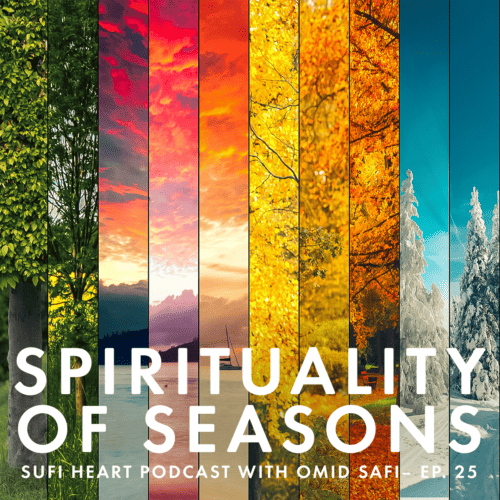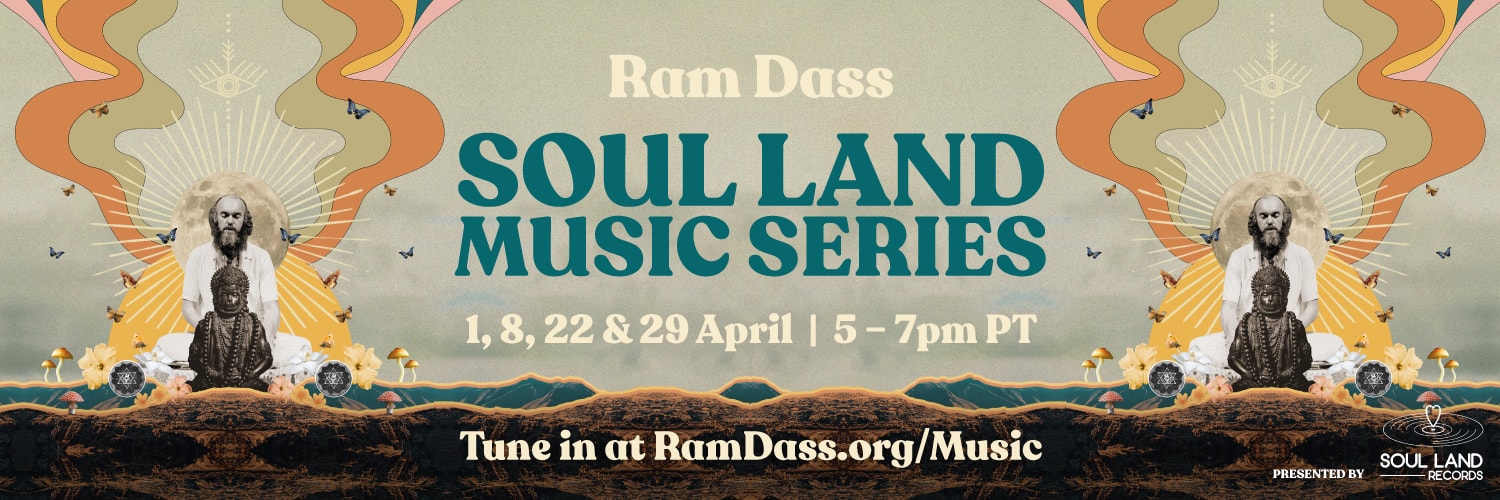
In this episode of Sufi Heart, Omid Safi discusses the spirituality of seasons. We learn to look at Islamic cultures for inspiration on attuning to the sanctity of nature.
Crossing Borders
Omid Safi begins by appreciating his origins as an Iranian American and addressing the refugee crisis. He asserts that refugees are valuable as humans, not for what spices or products they have brought to America. Instead of focusing on imports and capitalism, we can look to other cultures as a valuable resource to learn different ways of living. We can place value on people and traditions instead of what people can produce.
“The whole of the world has come together to produce objects that cross borders with ease and grace, but when it comes to the movement of people, we are far less generous. What does that tell you about the value that we place on things, and the lack of value that we place on people?” —Omid Safi
Attunement with Nature (9:16)
In Muslim cultures, the arrival of spring is celebrated and honored. Muslim people acknowledge the first day of spring as a solar new year, and they acknowledge the last day of winter as the end of the year. Omid describes this as an attunement with the seasons since spring is full of blooming beginnings and winter with endings and hibernation. What is the sanctity of seasons in your culture and in your own life? Perhaps we are disconnected to the spirituality of seasons. Unlike our ancient ancestors, we no longer rely on the cycles of nature. We can keep our homes temperate all year. We can have our harvests imported if we want fruit in the dead of winter. If it is dark, we can turn on a light.
“We have gained a lot in terms of productivity, but we have also lost a lot in terms of the rhythm of our life, the attunement to nature, and the ability to live a harmonious life”. —Omid Safi
The Seasons of Life (21:01)
Humans themselves have seasons. Omid gracefully describes how being youthful and full of beauty is much like the spring. In summertime the heat of life occurs, we mature and thrive. Akin to autumn, our adulthood sets in and we may start to fade, slow down, and let go. We simplify. Lastly in the winter of life, we age and sleep. Just like the soul of the tree goes inward and returns to the roots until spring, we too let our souls rest until they are ready to rejuvenate into the next phase of being. Before reading us a Rumi poem on this subject, Omid shares a popular contemporary phrase: What if what we experience as the darkness of the tomb is actually just the darkness of the womb?
To hear more perspectives on our relationship to nature, check out Ep. 8 of Being in the Way: Man and Nature
We Deserve a Break (41:20)
Humans, especially in the west, are pushed to produce year-round. People work all day, at night, and all year. People are rarely offered a true, unplugged vacation. We are slaves to capitalism and productivity. Omid encourages us to reflect on the meaning of repose, reflect on the meaning of the sabbath, and see what we can do to rejuvenate our soul. Do you feel rejuvenated by prayer, solitude, or a deep conversation with a beloved friend? Omid tells us we should make a habit of returning to our repose; it is just as important to return to repose as it is to be productive. Omid shares the Arabic word for heart, qalb, which also means change. He describes the spiritual heart or soul, as having the capacity to transform. We must remember to check on what state our heart is in, and to consider how we can rejuvenate it.
“In our day and age to insist on the reality that our souls and our bodies and our families and our communities are worthy of having seasons where we flourish and we produce and we harvest, and to have seasons where we retreat within, where we return to our roots and we rejuvenate, is a revolutionary act of survival and existence.” —Omid Safi

